5 Things To Avoid When Writing About Cops
If your goal is realistic police procedure inserted between scenes of suspended disbelief, well, there are a few things you should avoid, much like you’d steer clear of walking through gang turf while wearing a neon green “Gang-Bangers’ Mamas Have Dumbass Kids” t-shirt. By the way, should you decide to take that walk and are subsequently evading the inevitable incoming gunfire, you could use that time to rethink the use of run-on sentences, the Oxford comma … and cordite (say NO to cordite!).
1. Guns, guns, and more guns. Since bad guys are inclined to use weapons when committing their crimes of choice, firearms and ammunition are, out of necessity, a big part of a police officer’s world. As writers it’s up to you to learn the basics about the firearm carried by your protagonist, and the one in the bad guy’s pocket. Four things you should avoid when writing about firearms and use of deadly force are:
a) police officers do not shoot to kill.
b) police officers are not trained to shoot arms, legs, hands, feet, etc.
c) handguns are not accurate at great distances, so please don’t have your hero cop pick off a bad guy who’s merely a dot on the horizon.
d) street criminals often carry cheap, pawnshop-type handguns, or stolen firearms.

2. Donut-eating, beer belly clown. Like dinosaurs, those guys are practically extinct. Present day officers are normally pretty health conscious. They belong to gyms and they exercise regularly (many departments and academies have their own workout rooms/gyms). They eat wisely, and they definitely shy away from what used to be a standard part of the diet … donuts. Weight training is also a regular part of many officers’ daily exercise routine. Criminals of today are often lean and mean, so officers feel that it’s important to be able to handle themselves when the bandits decide to attack or resist arrest.
So please do avoid the “fat officer” cliché. Those of you who’ve attended the Writers’ Police Academy, think back to the uniformed officers you saw there. Did you see any that were overweight? No, you didn’t. Not one. When there were donuts around, did you see any officers lined up to snag one? Nope. In fact, the requests we generally heard from them were for bottled water, salads for lunch, and a healthy choice for dinner, including skipping dessert.
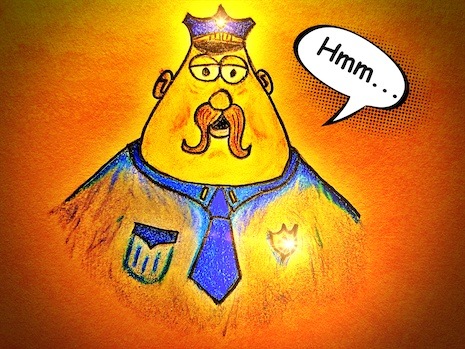
3. Knock, knock. The business of cops and robbers is not a 9-5 job. Unfortunately, murderers don’t choose their time to kill based on what’s convenient for the rest of the world. This means that cops, in the early stages of an investigation, often show up at someone’s front door in the wee hours of the morning. When they do knock at 3 a.m. and Johnny Killer’s mom answers, it’s important that officers develop a rapport with her.
It’s also important that cops are quick on their feet, noticing little things around the house—photos, trophies, etc.—that could help to begin a conversation and to put people at ease by talking about something they know and cherish. It places the officer and the killer’s family members on a bit of common ground. So please do avoid having the detective push his way into a house and start shouting, “Where’s Little Pauly? I know he whacked Tony Earwax!”
That sort of tactic rarely ever works. However, there’s a time and place for everything. Just be sure the time in your story matches that of the scenario.

4. Talk, talk, and more talk. Cops, especially detectives, must be the best used car salesman, ditch digger, auto mechanic, florist, circus dung shoveler, and warehouse box stacker in the world. What I mean by that is that investigators absolutely must be able to fit in by walking the walk and talking the talk no matter where they are and to whom they’re speaking. Dialogue is a huge key to solving crimes. Cops have to be able to “BS the BS’ers. So having the ability to carry on a meaningful conversation with anyone and everyone is an extremely important part of the job.
Where writers often fail is by having their fictional investigators use the same manner of speech throughout the book, no matter the setting. Attitudes and personalities among criminals change, even within the same neighborhoods. Culture plays a huge part in demeanor and personality. When those factors change, so should the manner in which the detective carries herself, and how she speaks (or not) to the various people in the story. In other words, when your hero finds herself at a marina she best be talking about the joy of fishing, not that the level of mercury in seafood is slowly killing everyone on the planet.
So, avoid the detective character who’s not a chameleon. They must have the ability to change when change is needed. Remember, they should have the ability to BS the BSer’s. You do know what I mean by BS, right? If not, take time out of your schedule today and have a nice barefoot walk in a pasture occupied by a couple of bulls. You’ll catch on really fast.

5. The “so-called” expert syndrome. Please use caution when seeking an expert to help with the cop facts in your story. If you want readers to open your book and “see” officers and investigators going about their daily activities, then it is an absolute necessity to have someone who’s lived the life answer your questions. Better still, sit back and let them talk. Listen to the little things they have to say—the ripping sound of Velcro when they remove their Kevlar vests, or the smell of stale beer and cigarette smoke along with the surge of adrenaline felt when wading into a crowded bar to arrest a drug-fueled, angry biker. The feel of your heart slamming against the backside of your breastbone as you search a dark, abandoned warehouse for an armed killer.
These things can only be described by someone who’s actually experienced them. Not someone who’s merely read about it. And especially not when the information is relayed through the family and friend network—“My uncle knows everything about cops because he used to deliver propane to a guy who lived next door to a woman who divorced a man who once played softball on Sunday afternoons with a man who used to live near a police station. Believe me, the stories my uncle can tell. Know what I’m sayin’?”
If you want realism when realism is needed, avoid the “so-called expert syndrome.” Talk to real cops, forensics experts in the field, etc. And for goodness sake, attend the Writers’ Police Academy. It is THE gold standard of hands-on training for writers.
Remember, though, as important as it is to be absolutely realistic when writing certain scenarios, as long as you can effectively show why and how reality has been suspended, then most readers will forgive and understand why your character did what she did. “It” doesn’t have to be true, the reader just has to believe it is, or that it could be true in the hero’s world. In other words, write believable make believe.



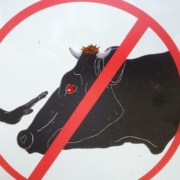

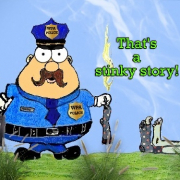

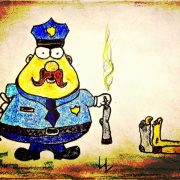
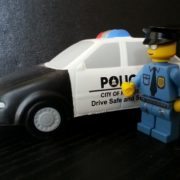
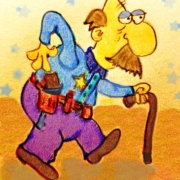




When choosing a police procedural to read, I always skip to the Bio, was it written by someone who was a real cop; do not care how much time someone spends as a crime reporter or a civilian employee, how can write about cops if you never gone through doors.
Good reminders, as always. I found the best money I spent was on beer for a group of detectives, and then listening to them talk to each other. I will say that when I did my ride along with the local deputy, I brought a platter of homemade cookies to the station, and they were gone when we got back.